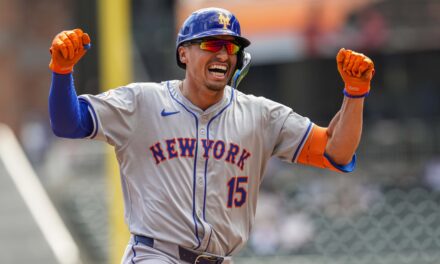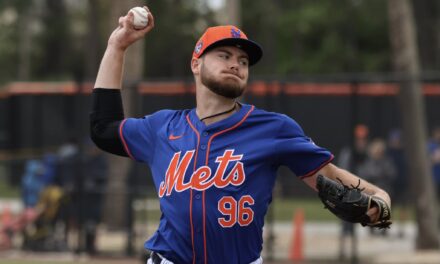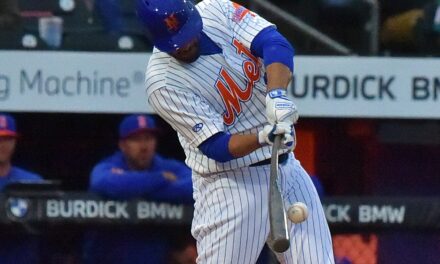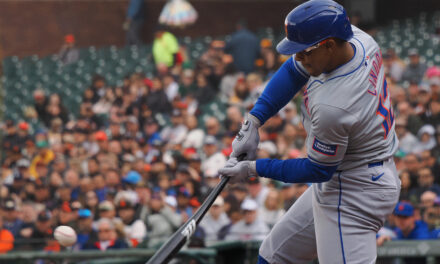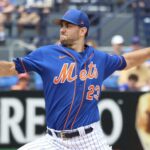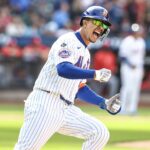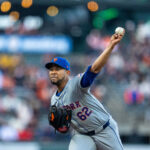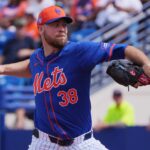I recently was emailed this question by one of our readers.
I heard that the Mets will not alter the dimensions of Citi Field next season. Does this mean that David Wright is doomed to be a 10-12 homerun hitter instead of a 30 homerun hitter?
I was a little surprised myself when I heard the news that Citi Field’s dimensions would stay the same. Last month, Wright admitted that he altered his swing because of the park and obviously there’s a carry-over when he’s on the road when you take a look at his splits. Personally, I feel Wright let the park get into his head and that he worried too much about it. He should not have altered a swing that he had so much success with in the past.
Wright still maintains a .300 clip, but his OPS will fall below .900 for the first time in his career. His doubles are down too, and his .460 slugging percentage is 75 points lower than his career average heading into this season. All of this is coming at a time (26 years old) when most hitters begin to reach their peak years. His strikeout rate is the worst of his career.
You can’t blame Citi Field for all these things. It was originally thought that players like Wright would see a decrease in homeruns that would be countered by an increase in triples and doubles. That didn’t happen either.
He is stealing more bases this season (24), but he is also getting caught more (9), and his SB% of .73, is the lowest it’s been in his last four seasons.
The Mets will not budge on their stance and make the park more friendly to hitters, some say it would cost the Mets money that they simply don’t have.
It falls on David Wright to adapt to his new home whether he likes it or not.
You don’t have to hit 30 homers to be a great hitter.
I believe that if Wright can improve his contact rate and decrease his strikeouts, he can still be a force to be reckoned with and an ideal number three hitter for the Mets, possibly even their best ever.
If Wright can improve his average by even 3%, he would be able to drive in many more runs as a .320 hitter than he would as a .310 hitter. He would also do well to stop swinging at balls outside of the strike zone. His 0.55 BB/SO ratio is the lowest of his career.
Wright needs to stop worrying about the homeruns and concentrate on simply driving the ball to all fields and becoming more disciplined at the plate. Ironically, he is seeing more pitches per plate appearance than he ever has before, but still manages to get fooled on those balls in the dirt.
Despite some of my nit picking, let us not forget that Wright is still one the best hitters in the game against lefthanded pitching. His .414 batting average and 1.127 OPS are astonishing to say the least.
So in short, Wright may not be that 30 homerun hitter we saw in ’06 and ’07, but he can still be one of the league’s best hitters and a perennial MVP candidate, even without the homeruns.

